AGILE PhD schools provide a forum for the next generation of scientists and research leaders to develop their own networks and to exchange ideas. As well as providing a set of core research skills, the Schools expose attendees to the diversity of leading edge topic areas in GI and spatial information sciences and, critically, provide them with different experiences and expectations around supervision, prosecuting research etc. Attendees are encouraged take ownership of their research, and are equipped with information about the wider context within which their research was being undertaken and are empowered to become the ‘domain experts’ in their topic.
2024 - Castellón, Spain
From 27 to 29 November 2024, the 7th Edition of the AGILE Doctoral School took place at the UJI, Castellón, Spain. Former participants from previous AGILE PhD Schools led the 2024 edition whose main theme was GeoAI for the Social Good. Find a detailed course programme, slides and materials at https://begin-standrews.github.io/agilephdschool2024/
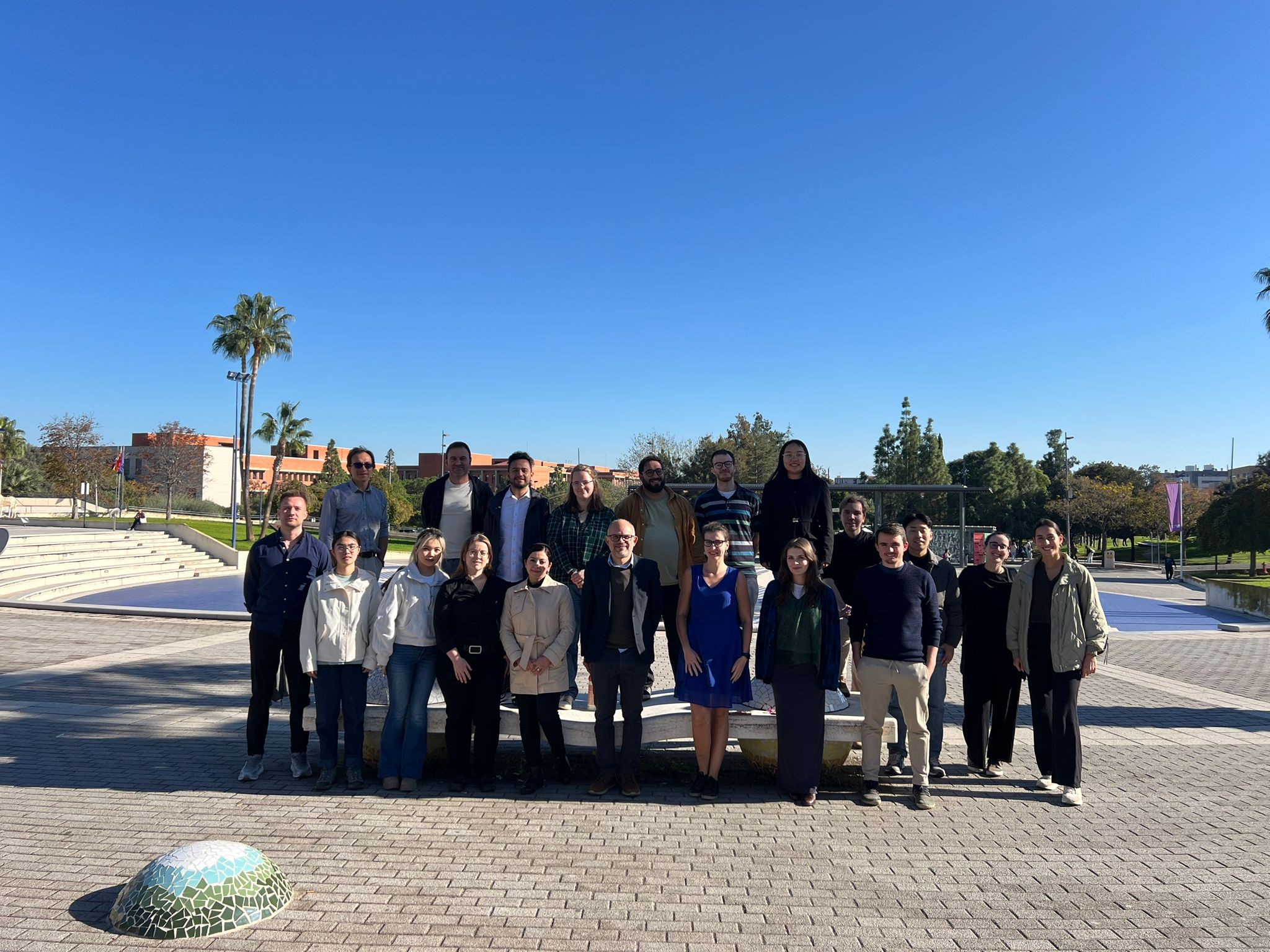
The event brought together 20 people between participants, organizers and invited speakers. AGILE had the pleasure to have Anita Graser, spatial data scientist and open source GIS advocate, João Porto de Albuquerque, Professor of Urban Analytics at the University of Glasgow, and Dr. Rafael Verduzco Torres, Professor of Urban Analytics at the same university, All of them contributed their knowledge in key areas of spatial data science, urban planning and sustainability. During three intense days, 13 participants from all over Europe had the opportunity to learn from these experts, share ideas and collaborate in building a more innovative and sustainable future through the use of geospatial technologies.
Organisers:
- Alina Ristea - UCL, The UK
- Hoda Bakhshi - University of Zurich, Switzerland
- Diego Pajarito - University of Glasgow, The UK
- Fernando Benitez-Paez - University of St Andrews, The UK
- Carlos Granell - University Jaime I, Spain
2022 - Castellón, Spain
The 6th AGILE Doctoral School 2022 was open to PhD students from all AGILE member organizations. It took place at the Institute of New Image Technologies, Universitat Jaume I, Castellón (Spain), from June 1 to 3, 2022.
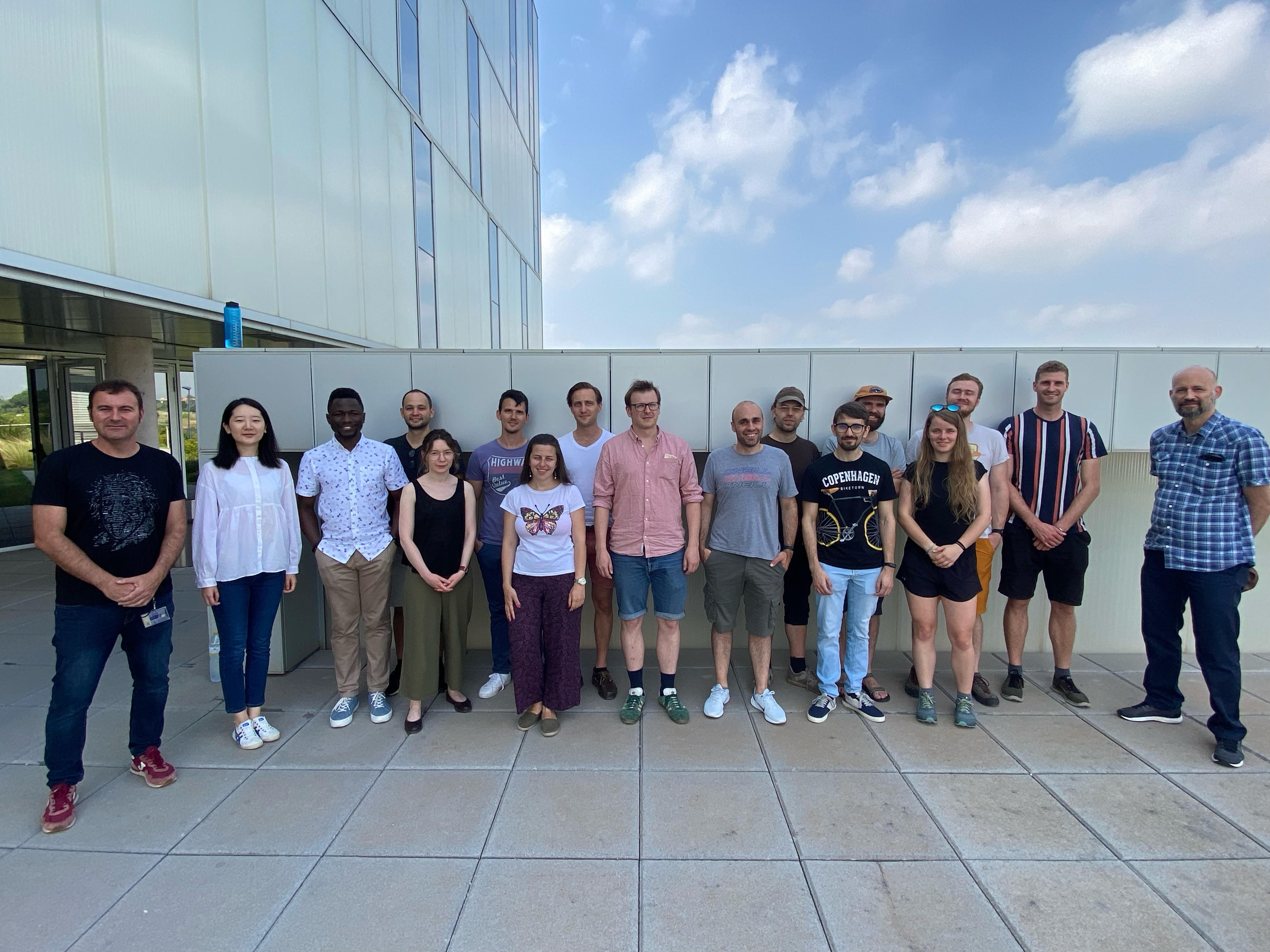
This year’s school theme was “make your work more open and reproducible”. One block was focused on training for academic presentation/pitching. Vicente Beltrán from the Department of English Studies at UJI was in charge of the first day of the School (pitching, oral presentations). In the second and main block, participants were introduced to Open Science & reproducibility/replicability in GIScience. The discussions addressed what Open Science means for participants’ work, their concerns and barriers, as well as the impact and benefit of adopting reproducible research practices for their future careers. Frank Ostermann from University of Twente and Carlos Granell (UJI) were the two facilitators of the next two days, centering the discussion on reproducibility & replicability in GIScience. Find a detailed course programme at https://geotecinit.github.io/agilephdschool2022/.
2019 - Tartu, Estonia
The proceedings from the 5th AGILE PhD School that was run in Tartu (Estonia) at the end of 2019 have been now deposited and published online at https://github.com/agilephdschool2019.
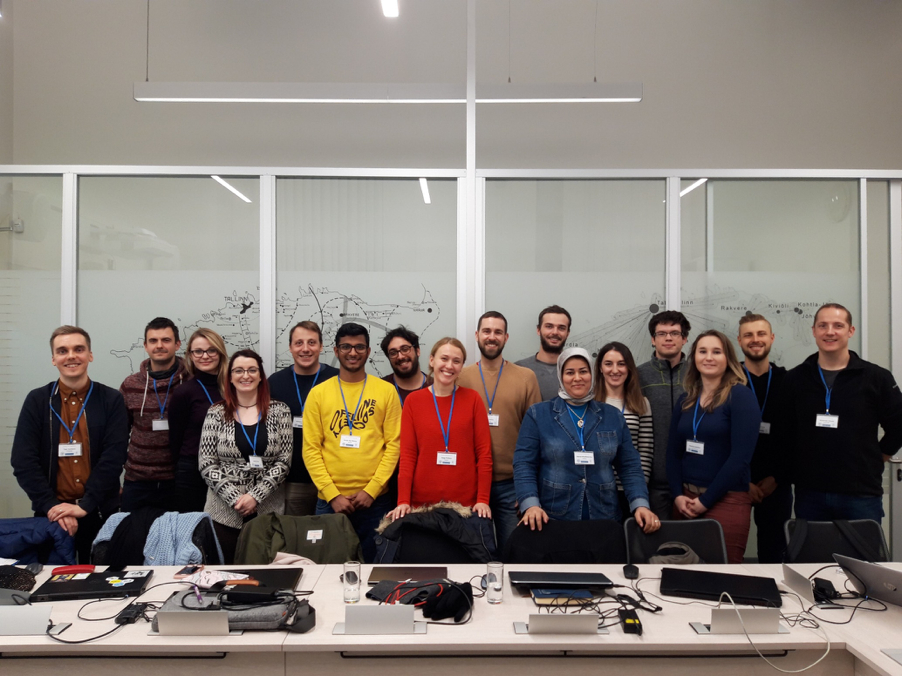
Alexander Kmoch and Evelyn Uuemaa from the University of Tartu were the organisers of the school, which was run over 3 days and included a full day on geovisualisation, and another focused on exercises on presenting research (presentation skills and styles), scientific writing styles, framing researching (linking literature reviews to research questions and methods) and communicating research. Compared to previous editions, the novelty this year was a full day on reproducibility and Data Carpentry hands-on materials. Timing was perfect to introduce the Author Guidelines for Reproducible Paperswhich are part of the Call for Papers. Frank Osterman (ITC, The Netherlands) and Carlos Granell (UJI, Spain) gave a short (remote) presentation to the participants about AGILE, followed by an introduction to reproducibility.
Consequently, in regards to the focus on reproducibility and with support from Daniel Nüst from the University of Münster, advantage was taken of the prepared R Markdown materials and a reproducible semi-automatic workflow was developed to generate high-quality PDF documents inpreparation for publishing the workshop proceedings.
Alexander Kmoch, Daniel Nüst, Evelyn Uuemaa (eds.): Proceedings of the 5th AGILE (Association of Geographic Information Laboratories for Europe) PhD School 2019, Tartu, Estonia, November 25-28, 2019, doi: 10.5281/zenodo.3835766, online https://agilephdschool2019.github.io/
2017 - Leeds, United Kingdom
The 4th AGILE PhD school was run over 3 days and included sessions and exercises on, presenting research (presentation skills and styles), scientific writing styles (ladder reading and writing etc), framing researching (linking literature reviews to research questions and methods) and communicating research (telling the story in appropriate way for the audience you are trying to reach – eg policy).
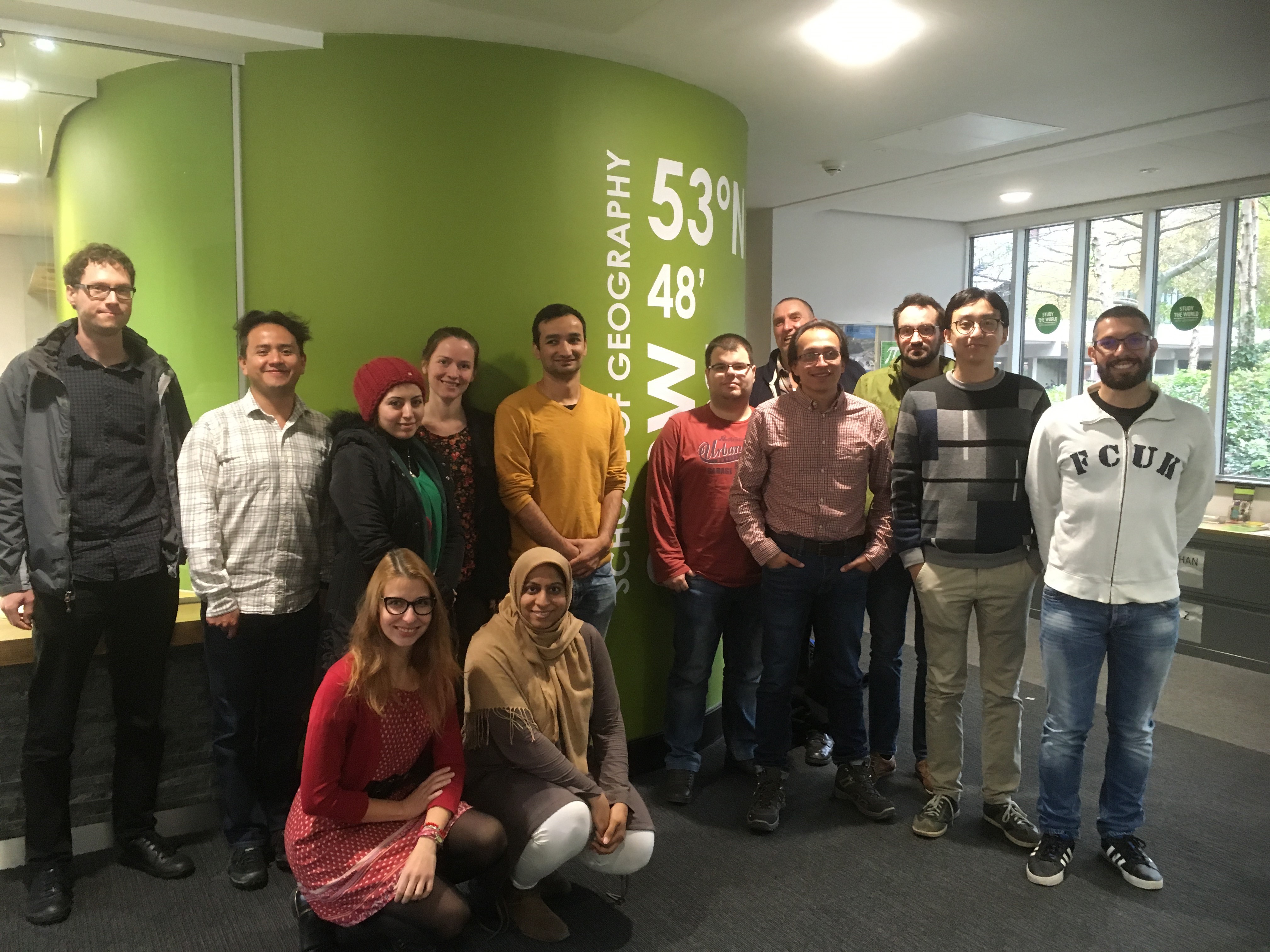
These were led by Lex Comber (https://goo.gl/CPgDRj) with inputs from Ian Philips (https://www.researchgate.net/profile/Ian_Philips) and Nick Malleson (https://www.geog.leeds.ac.uk/people/n.malleson) gave the students a hands on master class in Agent Based Modelling.
The students were also introduced to the Leeds Institute for Data Analytics (LIDA – see https://lida.leeds.ac.uk) one of the leading Big Data research centres in the UK and one of the partners in the Alan Turing Institute (see https://www.turing.ac.uk).
We had a good time socially as well, visiting one of the oldest pubs in Leeds, a local Persian restaurant and a restaurant specialising in local, Yorkshire produce.
The proceedings can be cited as follows:
Lex Comber and Nick Malleson (eds.): PhD School of the Association of Geographic Information Laboratories for Europe. Proc. AGILE PhD School 2017, Leeds, UK, October 30 - November 02, 2017, CEUR-WS.org, online CEUR-WS.org/Vol-2088
2015 - Champs sur Marne (Paris), France
The 3rd AGILE PhD School was led by Prof Lex Comber (University of Leeds, UK) and Dr Bénédicte Bucher (IGN, France) ran over 4 days and was attended by 20 PhD students from institutions across Europe. The aim of the School was to provide training in core research and writing skills for the next generation of European researchers in spatial information sciences support students. It included sessions on scientific writing, how to frame research and presentation skills with talks from international speakers on recent developments in key GIScience topic areas. There were also a number of social events! The accommodation, meals and travel were fully supported financially by AGILE for each of the attendees.
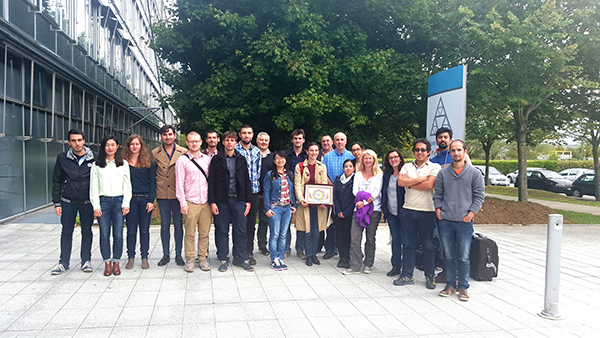
Each PhD student delivered a paper on her/his PhD research. The proceedings of the PhD school are published as CEUR workshop proceedings.
Council: Alexis Comber, Benedicte Bucher, Members: University of Leeds, IGN-FR
2013 - Frauenwörth, Germany
The second AGILE PhD-School was as successful and interesting as the first event. Supported by AGILE grants and organized by Hardy Pundt (University of Applied Sciences Harz, Germany), Lars Bernard and Stephan Mäs (both Technical University of Dresden, Germany) the PhD-School took place on Sept. 30 - Oct. 2nd 2013 in Frauenwörth, Lake Chiemsee, Germany. The Benedictine abbey of Frauenwörth provided excellent conditions for undisturbed and intensive work on the scientifically challenging themes.
The twelve participants came from AGILE labs in Austria, Czech Republic, France, Germany, Israel, Portugal, Switzerland and United Kingdom, as well as from the University of Tokyo, Japan. The discussed PhD topics covered a wide spectrum of scientific fields with respect to Geoinformatics.
Thomas Blaschke (University of Salzburg, Austria) attended as a senior researcher and gave an inspiring presentation on how to successfully organize a PhD. This year’s best presentation grant went to Stefano Grassi from ETH Zurich for his contribution on “Development of an integrated spatial optimization model for renewable energy planning”.

Each PhD student delivered a paper on her/his PhD research. The proceedings of the PhD school are published as CEUR workshop proceedings.
Council: Hardy Pundt, Lars Bernard, Lead: Stephan Mäs, Member 1: University of Applied Sciences Harz, Other Members: TU Dresden
2012 - Harz, Germany
The first AGILE PhD-School turned out to be an interesting, well-attended and fruitful event. Supported by AGILE grants and organised by Hardy Pundt (University of Applied Sciences Harz, Germany) and Lars Bernard (Technical University of Dresden, Germany) the PhD-School took place on March 13-14 2012 at the University of Applied Sciences Harz in Wernigerode. The fifteen participants came from AGILE labs in Belgium, France, Germany, United Kingdom, Spain, and Portugal. They covered a wide spectrum of scientific fields with respect to Geoinformatics.
Benedicte Bucher (IGN, France) attended as a senior researcher and advised on how to successfully organise a PhD. Nicholas Gould from Manchester Metropolitan University received a best presentation grant for his submission on 'Semantic description of generalisation web services for on-demand mapping'.
Each PhD student delivered a paper on her/his PhD research. The proceedings are published in Proceedings 1st AGILE PhD School, ISBN: 978-3-8440-0873-9, which is part of the series Regionales Innovationszentrum für nachhaltiges Wirtschaften und Umwelt-/Geoinformation in the Shaker Verlag GmbH.
A list of the proceedings can be found on this website. A document with all proceedings is available here.
Council: Hardy Pundt, Lead: Hardy Pundt, Member 1: University of Applied Sciences Harz, Other Members: TU Dresden, IGN-FR
